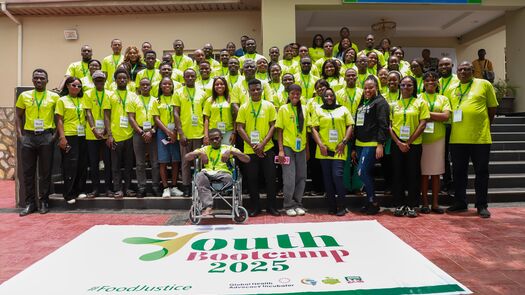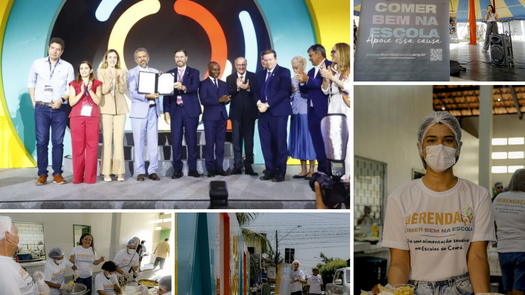November 25, 2025
July 29, 2025
Fighting for Healthy Food: Lessons from Argentina's Battle Against Industry Interference
On July 16th, The Global Health Advocacy Incubator (GHAI) co-hosted the virtual launch of a comprehensive new report from Argentinian civil society organizations on industry interference in front-of-package warning label policies. The report was produced by a coalition including FIC Argentina, FAGRAN, Fundación Sanar, FUNDEPS and Consciente Colectivo
The report, “Food Industry Interferences: Strategies and False Arguments in Lobbying Efforts against the Passage of the Law on the Promotion of Healthy Nutrition in Argentina,” details the significant interference of the food industry in the approval process of Argentina's healthy eating law, known as the "Ley de Etiquetado" (Labeling Law). The report documents how different sectors of the food industry tried to halt or weaken this vital public policy. Simultaneously, it highlights how civil society organizations collectively organized, developed strategies and counteracted this interference to defend the right to healthy food and pass a best-practice front-of-package labeling law.
Here are five key takeaways from the speakers who presented chapters from the report:
- Victoria Tiscornia (FIC Argentina) showed how her organization meticulously compiled and scientifically refuted the food industry's arguments, which often presented nutritional myths and misleading economic claims. Her presentation underscored the importance of responding to disinformation with robust, conflict-of-interest-free evidence to defend public health standards.
- Ariana Krochik (Consciente Colectivo) highlighted the resourceful strategies employed by civil society to counter industry lobbying during the legislative process. A notable takeaway was their "Nos toman por idiotas" (They take us for fools) campaign and the "Activa el Congreso" (Activate Congress) platform, which mobilized citizens to directly pressure legislators and publicly expose industry interference.
- María Laura Fons (FUNDEPS) elaborated on the successful legal counterarguments used against the industry's claims that the law violated international commitments or local regulations. Her presentation emphasized that human rights principles, public health priorities and proper interpretation of international law consistently supported the nation's right to protect its population's health.
- Florencia Guma (Fundación Sanar) focused on the corporate political activity of the industry, particularly their co-option of scientific and professional organizations to spread misleading narratives. She detailed the industry's use of "4D" strategies (Deviate, Delay, Divide and Discredit) and stressed the critical need for transparency and stringent management of conflicts of interest to safeguard public health policies.
- Ana Cáceres (FAGRAN) shared her organization’s challenging but ultimately successful journey to declare itself an organization free of conflicts-of-interest, navigating the complex reality of industry ties within the nutrition profession. Her insights highlight the importance of setting up internal regulations and fostering critical awareness among professionals to uphold ethical principles and institutional autonomy from the food and beverage industry.
The ingenuity of the Argentinian coalition's work lies in their interdisciplinary and multi-faceted approach. They seamlessly integrated rigorous scientific and legal counter-argumentation with dynamic public mobilization campaigns and the systematic exposure of industry tactics and conflicts of interest. This comprehensive strategy allowed them to effectively address the industry's interference from all angles—from parliamentary debates to public opinion, using the diverse ability within their coalition.
The Argentinian coalition’s report serves as an important resource and a practical guide for healthy food policy advocates across the globe formulating strategies and tactics to counter industry interference across multiple fronts. Their experience underscores that organized civil society, armed with evidence and a commitment to transparency, can prevail against formidable commercial interests to secure policies that prioritize public health and the right to nutritious food.
Recording (Spanish with English subtitles):



